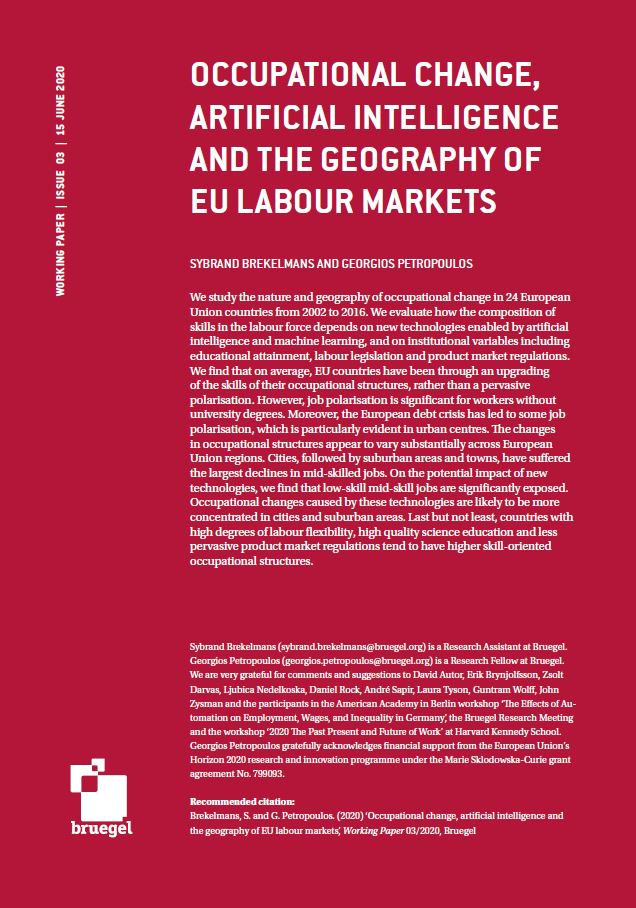Former scholars

Sybrand Brekelmans
Research Assistant
Sybrand is a Dutch national and a research assistant at Bruegel since September 2019. He holds a Master's Degree in Specialized Economic Analysis in macroeconomic policy and financial markets from the Barcelona Graduate School of Economics (BGSE). Prior to that, he completed a BSc in Economics and Mathematics at the University of Utrecht. His research interests include international trade, monetary policy, and empirical techniques such as complexity analysis and macroeconometrics.
Prior to Bruegel, Sybrand has worked at the OECD Development Centre where he was part of the Asia Desk. He was involved in the drafting of the unit's biannual flagship publication: The Economic Outlook for Southeast Asia, China and India. He contributed to the publication on topics such as international and regional trade, monetary policy, and infrastructure development policy. Among others, he worked on trade-related issues, focusing on the trade war between the United-States and China and its impact on the Southeast Asian economies.
Sybrand is fluent in Dutch, French, and English and speaks German at a basic level.







